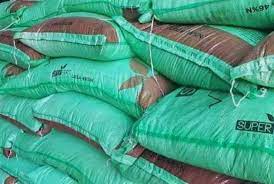A Zimbabwean government-owned entity, Verify Engineering, is organizing to use locally available coal to manufacture ammonia-based fertilizers. The project is a joint scheme partnership between Verify Engineering and Magcor Consortium Group of Companies from Canada. The project is anticipated to produce a “significant” amount of top-dressing fertilizer for farmers. Satisfying the country’s fertilizer demand is the ultimate goal.
In 2018, President Emmerson Mnangagwa sanctioned the implementation of the project, valued at $750 million. Afterwards, the two companies visited China to benchmark technical diligence on the Chinese companies necessary in implementing the project. Zimbabwe will be using coal reserves as feedstock to manufacture ammonia-based fertilizers of the highest international quality in a clean manner.
Increasing demand for ammonia-based fertilizer in Zimbabwe
Verify concluded a feasibility study on coal gasification technology as a means of producing gas. Additionally, gas can be further advanced into nitrogenous fertilizers by using the Bosch-Haber process. Zimbabwe has a high demand for fertilizer, but local production can only meet 10% of the demand. The remaining 90% prerequisites to be imported. Moreover, this is a challenge for farmers in a country who face foreign currency scarcities and a wildly fluctuating exchange rate. Buying local ammonia-based fertilizers will be cheaper than importing, and this demonstrates that there is hope for the ailing Zimbabwean economy.
Verify Engineering is a momentous producer of acetylene, medical oxygen, industrial gases, and nitrogen gases. Furthermore, Verify Engineering supplies consumers in the healthcare, petrochemical refining, manufacturing, beverages, food, fibre-optics, steel manufacturing, chemicals and water treatment industries.
Also Read: Chinese firm to invest US$ 6bn in construction of new Industrial Park in Zimbabwe
Coal is rich in carbon, a source of energy for microorganisms that permanently enrich soil nutrition, including depleted, damaged, underused and unused soils. The nutrients in coal should be processed and stimulated in order for plants to absorb them as fertilizers. Coal-to-fertilizer technology is also referred to as nutrient activation technology. Ammonia-based fertilizers from coal forms the future of Zimbabwe’s agriculture.

Leave a Reply